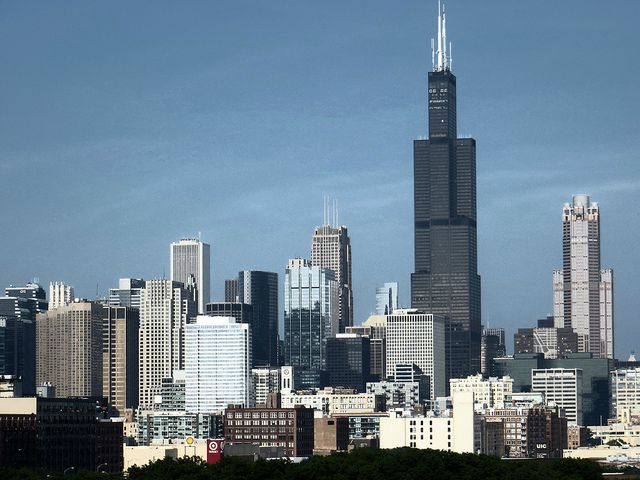Chart Shows The Moment Chicago Became Unaffordable For Millennial Renters
By Rachel Cromidas in News on Jul 17, 2015 5:10PM
Having your rent hiked beyond your means has become a right of passage in Chicago, where there's no limit on how high rents can go.
We vaguely remember that it wasn't always like this. There was a time when a studio apartment a stone's throw from the lake could be easily got for under $800 a month and the gentrification of Logan Square was just a gleam in realtors' eyes.
But the tide was turning, we knew, even as our friends on the coasts complained to us of astronomic rents, brokers fees and deposits, and we laughed at them from within our cozy, CTA station-adjacent three-flats.
Bloomberg News has calculated the time Chicago and other major U.S. cities suddenly became "too expensive," by many typical measures of housing affordability, down to the season. For Chicago, it was back in Quarter 2 of 2012, around the time the city hosted the NATO Summit, Illinois's disgraced governor Rod Blagojevich went to prison and national treasure Kanye West first appeared in an episode of Keeping Up with the Kardashians.
A lot of factors can go into making a city affordable or not, from the average prices of groceries and gas to transportation fees. For Bloomberg's analysis, the news outlet just looked at the average salaries of Millennials, or people in that wide and inscrutable 22 to 34 year-old age bracket that journalists love to analyze, and the average rental prices in each city. A city is considered unaffordable once its average rent becomes more than 30 percent of renters' average income—the level most financial budget experts will tell you to keep your rent below.
Of course, certain other cities have it worse, and have had it worse for a lot longer. Miami's unaffordable moment happened sometime in the summer of 2001; San Francisco's in the winter of 2003; New York City's in the spring of 2004; and Boston's in the winter of 2005. And Los Angeles has been statistically unaffordable for at least the last four decades.
With the number of renters, in Chicago and elsewhere, expected to grow faster than the number of rental units on the market in the next few years, and roughly half of all Chicagoans unable to afford their rents, we're just going to have to get used to this affordability gap. Or, as Bloomberg suggests, move to St. Louis.
